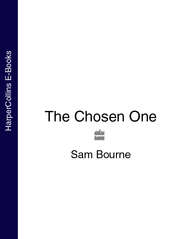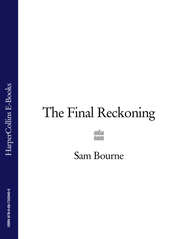По всем вопросам обращайтесь на: info@litportal.ru
(©) 2003-2024.
✖
Pantheon
Настройки чтения
Размер шрифта
Высота строк
Поля
Odd. Florence had no particular interest in the last war. If she was not a psychologist, she was certainly not a historian.
He turned to the next book, written by an American scholar affiliated with Harvard Medical School: Studies in Pediatric Trauma. He flicked through the pages again, looking for one of those tiny white slips. He found it and began reading:
‘… sustained exposure of a non-traumatized child to a traumatized adult can result in secondary or passive trauma. Symptoms range from selective dumbness, melancholia, extreme shyness, impaired development, bedwetting …’
Instantly, he thought of Harry: how he had been slower than the other children to control himself at night, how he had still not mastered it. Florence had been anxious, refusing to be placated by James’s insistence that their son would ‘soon get the hang of it’. Until now James had thought nothing more of it.
He picked up the third book. A Compendium of Advice for Mothers. So very unlike Florence, who usually cursed such things. He didn’t need to thumb through the pages. The book opened automatically, the spine already cracked. The chapter heading: Preparing a child for a long journey or separation.
He read the title again and then once more, the dread rising in him. Any hope he had harboured that this might be a stunt, an attempt by Florence to make a point, was fading fast. There it was in black and white. What his wife had planned for was a long journey. Or, worse, a separation.
He went back to the first volume, to the article on former combatants in the last war, reading a paragraph at random:
‘… subjects in the trial revealed a set of behaviors which recurred. Among them were acute insomnia, including difficulty both falling and staying asleep; excess anger and temper; poor concentration. Others reported a heightened state of awareness, as if in constant expectation of danger.’
He skimmed a few paragraphs ahead:
‘… several of those interviewed displayed an extreme reluctance to speak of their wartime experiences, flinching from even indirect reminders. Perhaps paradoxically, many of these same people complained of unwanted memories of the event, “flashbacks”, as it were. The most common complaint, experienced by some sixty-eight per cent of those surveyed, was of distressing dreams, often violent …’
James slammed the book shut, his heart hammering. He was beginning to feel light-headed. He was hungry. He had barely eaten since last night and he had exerted himself strenuously on the river early this morning. The alcohol would not have helped either. The room was beginning to spin.
He stood up and saw Epstein at the desk, the old man’s bespectacled face appearing to shrink and swell, waxing and waning like the moon. He had to get out, into the fresh air. He mumbled an apology, left the books where they were and stumbled towards the exit.
Outside, he gulped down large draughts of oxygen, clutching the handrail by the entrance. Across the street, the Kings Arms was filling up now with the after-work crowd: not students but academics-turned-civil servants.
He needed to think but his head was throbbing. What had he been expecting? He had assumed something more direct: an atlas, perhaps a road map, maybe a train timetable. But this, what he had just seen … he felt nauseous.
Where the hell was his wife? Where had she gone? It unnerved him to imagine that she was living and breathing somewhere – perhaps arriving at a distant railway station or walking down a street or sipping a cup of tea – that she existed somewhere now, at this very moment, and he had no idea where. He told himself he could survive being apart from her, so long as he knew where she was. But he knew that was not true. Ever since those nights and days in Madrid, holding each other as the bombs fell, he felt that nature itself demanded they be together. As a scientist, he was not meant to believe in fate or destiny, so he could not say what he truly felt. Nor did his education have much tolerance for a word like ‘souls’, but that too was what he felt: that their souls had been joined.
Harry’s arrival had only confirmed it. He loved his son with an intensity that had surprised him. He pictured him now, rarely saying a word to anyone, clinging to his little polar bear. The thought of life apart from his son struck sudden terror into his heart.
The words appeared before him, floating in front of his eyes: a long journey or separation. A black thought raced through his mind, like a virus carried on his bloodstream. Could it be, was it possible …
Suddenly and without any warning even to himself, as if his mouth, chest and lungs had a will of their own, he heard himself screaming at the top of his voice. ‘WHERE ARE YOU?’
The sound of it shocked him. A group of young men drinking on the pavement outside the Kings Arms looked towards him, their faces flushed, their necks taut with aggression. James wondered if these were the veterans of the Dunkirk retreat – or evacuation, as the BBC delicately phrased it – brought here for treatment at the Radcliffe Infirmary. Florence had mentioned them only yesterday, reporting the scandalized reaction of some superannuated don or other who had been outraged by the soldiers’ constant state of drunkenness. James had shrugged, refusing to condemn servicemen for seeking comfort wherever they could find it.
Ignoring them, he crossed the road, retrieved his bike from outside Wadham and cycled away.
He pedalled maniacally, trying to keep his thoughts at bay. And yet they refused to be halted. He could almost feel them in his head, speeding around his cerebral cortex; as soon as he had blocked off one neural pathway, they re-routed and hurtled down another, shouting at him inside his head, forming into words.
He smothered them with another idea. It was Thursday, nearly seven o’clock in the evening and it was summer. Ordinarily, this was when Florence would be out with her friend Rosemary for the weekly walk of their rambling club. As far as James could tell, most were communists, all but ideological in their zeal for strenuous exercise in the British countryside.
The group would probably be walking back by now and, if they were sticking with their usual routine, he knew just where to find them.
And so, for the second time that day – though it felt like another era – he was back by the river, cycling along the towpath towards Iffley Lock. And, sure enough, there they were: Rosemary at the front, in sensible shoes, her sensible brown hair in a sensible bob, carrying one handle of a picnic hamper, the other taken by a strapping young female undergraduate. James let his bike slow, then swung one leg off it, so that he was perching on just one pedal, before hopping off, trying to look calm and composed. No red mists now, he told himself.
‘Hello there,’ he called out, giving a wave.
‘Is that you, James?’ she asked, peering through spectacles which, while no match for Magnus Hook’s, consisted of two substantial slabs of glass.
‘Yes, yes it is. I was just—’
‘Don’t worry, I can guess.’ She nodded at the young woman on the other side of the picnic basket who immediately and deferentially yielded her handle to James, falling back to join the chattering group of women a few paces behind. How Florence fitted into this group, James could not imagine, except that it was a pretty safe bet that several would have had a strong ‘pash’ for her. Perhaps Rosemary too. He took the basket in one hand, wheeling his bike in the other, and waited for her to speak first.
‘So, you’re looking for Florence?’
‘I am, as it happens. I don’t suppose you know where she—’
She cut him off, her gaze fixed straight ahead: ‘How long has she been gone?’
‘Since,’ he made a gesture of looking at his watch, ‘this morning, as a matter of fact.’ He was carrying the hamper in his left arm, which was already buckling under the strain. But he was reluctant to say anything, lest he distract Rosemary whose brow was fixed in concentration. But it was she who stopped.
‘Audrey!’ she shouted, turning to address one of the walkers behind. ‘Could you and Violet take the hamper? There’s a love.’
Two of the girls rushed forward to do as they had been told. Rosemary supervised the handover, then waited while the rest of the group overtook them, ensuring that she and James were well out of earshot. ‘Gone since this morning, you say,’ she said at last.
‘Yes.’
‘And you thought she might be with us.’
‘Well, it’s Thursday evening. She never misses her weekly walk, rain or shine.’
‘Ramble, Dr Zennor. We call it a ramble. And, you’re right, Florence is a stalwart. She hated missing the last couple of weeks.’
‘Missing them? She didn’t miss them.’
‘Well, she wasn’t here.’
‘I think you must have that confused. I remember it distinctly, Florence left at five o’clock, walking boots on. Same as always. I can picture her coming home, telling me about it.’
‘Well, I run this rambling club, Dr Zennor, and I’ve never missed a week. Not one. And I can tell you that Florence was absent last Thursday, as she was the week before. She’s not the kind of woman whose presence goes unnoticed.’
James was baffled. ‘Did she give any explanation?’
‘Only that something had come up. Something important. She was very apologetic.’
James was working through the different logical possibilities, trying to rank them in order of probability: that Rosemary was lying; that Florence had joined some other group and lied to her friend in order to spare her feelings; that on both Thursdays Florence had indeed been somewhere else, somewhere important, and had lied to him about it.
Rosemary spoke again. ‘This is very awkward, Dr Zennor. When speaking about the affairs of others, one never knows how much one is meant to know. Or how much the other parties themselves know.’
‘Affairs? What do you mean, “affairs”?’
‘Sorry. That was a very poor choice of word. Sorry about that. When one is speaking about the lives of others, let’s put it that way, one is never quite sure where the boundaries lie.’
‘Look, Miss—’ he ran dry, immediately regretting the attempt at a name.
‘Hyde, it’s Rosemary Hyde. And that rather makes my point, Dr Zennor. I have been your wife’s friend for at least ten years, since we were at school together. I suspect I am her closest confidante. And yet you are not entirely sure of my name.’











